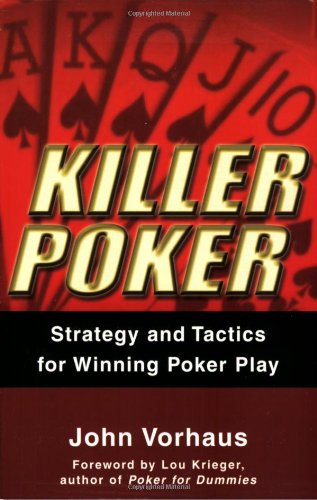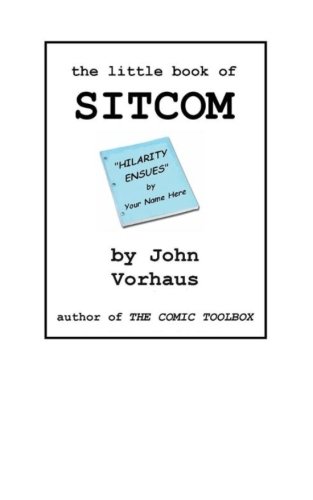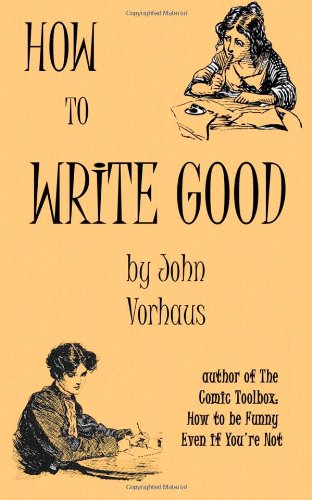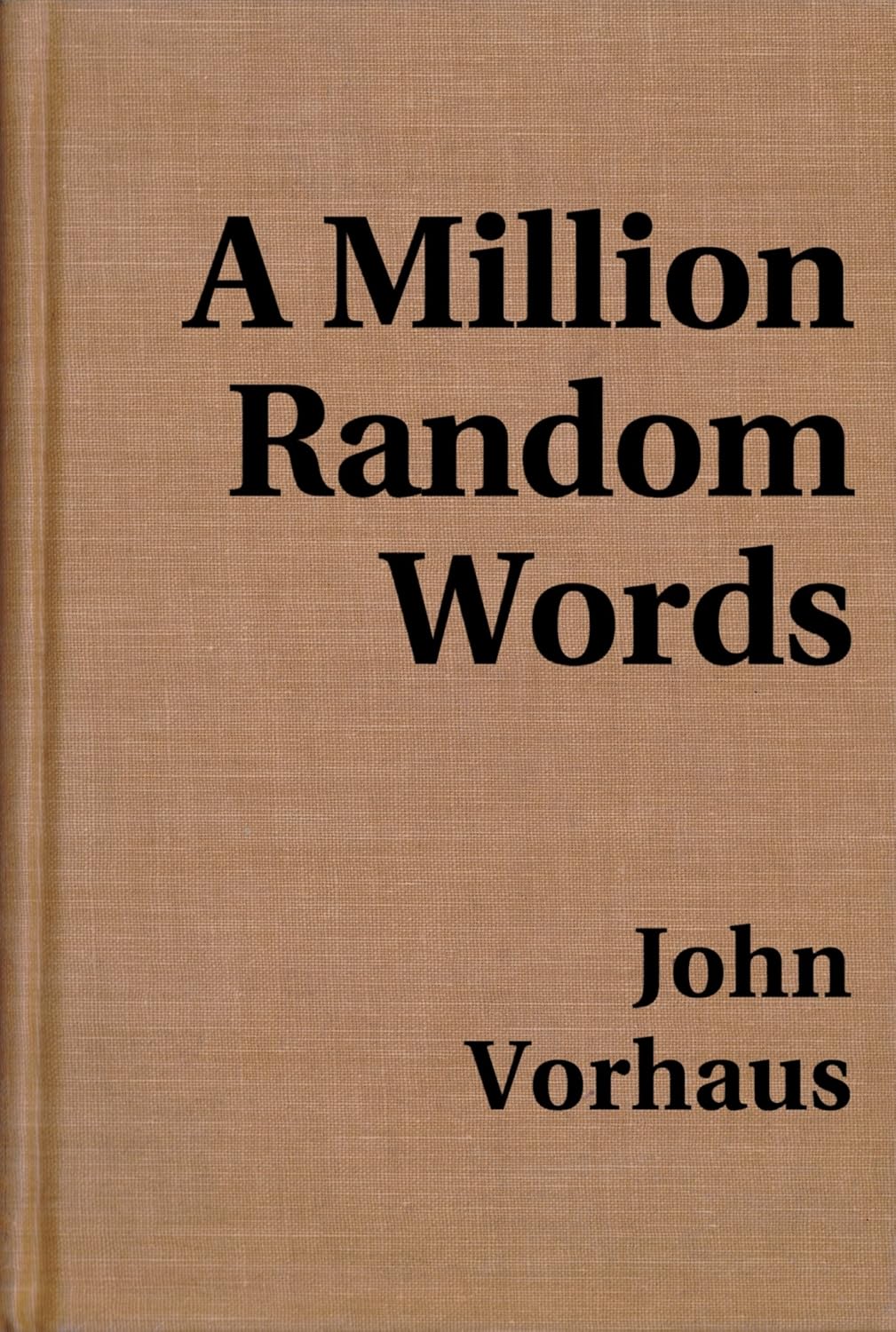In the publishing world, an indie author has to find a good editor for their manuscript and make sure it has a professional looking cover. But even with those two things set, there's still the matter of marketing. There are some rudimentary things an indie author can do to self-promote, but sometimes that's not enough. Recognizing that John sold himself more than the book, I asked him if he would write a blog post on self-promotion.
Without further ado, here's John offering advice on "Expanding Your Brand".
 I understand my problem exactly.
I understand my problem exactly.On one hand, I have a lot of how-to books (on writing and on poker) which sell their asses off because they have just exactly the information that certain people need, just exactly when they need it. On the other hand, I have all these terrific novels that struggle to find their audience, because reading a novel is a recreational activity; in other words, it’s a want to, not a need to proposition. How-to books sell because they meet the needs of a specific need-to proposition. Novels compete against other forms of recreation because they don’t have that urgent gravitational pull. And they face fierce competition, not from other novels but from other forms of recreation. I, for example, read books quite happily and enthusiastically on my iPhone—once I can get past my email and twitter and the baseball scores and all the dang games. I know I’m not alone in this. Never in human history has the act of picking up a book had to compete so hard against the act of picking up something else.
 Okay, so that’s where we are: need-to books sell easily; want-to books sell hard. How should we, as cottage-industry entrepreneurs, respond to this? One thing we could do is write a lot of need-to books. This is simply a matter of looking around, saying, “What am I good at?” and knocking out 15,000 words on that subject. Did I say 15,000? Yes, 15,000. That’s not much, nowhere near the 70,000 words, minimum, that you need to call a novel a novel. Is 15,000 words enough for a how-to book? I can tell you from personal experience that the answer is an emphatic yes. Because, you see, a function of all those short attention spans out there, and a function of the competition of all those games, websites, downloads, videos, and social media, is that people would rather spend less – less time and less money – even for information they know they really need. My two small reads—the little book of SITCOM and How To Write Good—routinely outsell my whole novel catalog combined.
Okay, so that’s where we are: need-to books sell easily; want-to books sell hard. How should we, as cottage-industry entrepreneurs, respond to this? One thing we could do is write a lot of need-to books. This is simply a matter of looking around, saying, “What am I good at?” and knocking out 15,000 words on that subject. Did I say 15,000? Yes, 15,000. That’s not much, nowhere near the 70,000 words, minimum, that you need to call a novel a novel. Is 15,000 words enough for a how-to book? I can tell you from personal experience that the answer is an emphatic yes. Because, you see, a function of all those short attention spans out there, and a function of the competition of all those games, websites, downloads, videos, and social media, is that people would rather spend less – less time and less money – even for information they know they really need. My two small reads—the little book of SITCOM and How To Write Good—routinely outsell my whole novel catalog combined.  They earn. They earn consistently and reliably, month after month, year after year, and they (and titles like them) allow me to call myself a working writer—a consummation devoutly to be wished.
They earn. They earn consistently and reliably, month after month, year after year, and they (and titles like them) allow me to call myself a working writer—a consummation devoutly to be wished.So why don’t I write how-to books exclusively? I sure could if I wanted to. I know enough about enough things that I could write how-to books till I die and never run out of subjects. But I wouldn’t be satisfied, because my heart lies in my fiction. Perhaps yours does, too. And even as I’m here saying “expand your brand through non-fiction,” you may be thinking, Nah, not so much. That’s really not for me. I feel ya, dawg. I do.
But here’s the thing: these books cross-sell. Someone discovers my poker books or writing books. They drop me a line to say how much they enjoy my writing style. I write them back and say, well, if you like my style, you’ll love my novels. Having already become fans of my way with non-fiction words, they’re ready to love my fiction words as well. I’ve reached them. I’ve used my non-fiction works as a bridge between my novels and my audience. That’s the argument for expanding your brand: The more people who approach you—from whatever direction and for whatever reason—the bigger your audience will be for the stuff you really want to sell.
 So where, in this pantheon of titles, do we put such odd frivolities as my book, A Million Random Words? It contains, as the title promises, exactly a million random words, arranged in random order, and offered either as a one-note joke or as a sneaky-useful random reference book for writers or other creative types looking for new ways to trigger new thoughts. But what exactly is this book? It’s not fiction, certainly. It’s not non-fiction, certainly. It’s something altogether else. It doesn’t fit within my brand.
So where, in this pantheon of titles, do we put such odd frivolities as my book, A Million Random Words? It contains, as the title promises, exactly a million random words, arranged in random order, and offered either as a one-note joke or as a sneaky-useful random reference book for writers or other creative types looking for new ways to trigger new thoughts. But what exactly is this book? It’s not fiction, certainly. It’s not non-fiction, certainly. It’s something altogether else. It doesn’t fit within my brand.Which means that it expands my brand.
It brings other people to my work from a wholly different direction. Vorhaus? Isn’t he the guy with the wacky random words project? Indeed he is. And if you got the joke of that, you’ll probably like some of the other items in his catalog as well. This is how I think of cross-selling. I want my brand to be broad and deep and interesting, with many points of entrance for many different kinds of readers or users. I want to welcome them into my world, and once they’re there, I want to have many intriguing things to show them. And that’s everything from a million random words to the latest novel I have so lovingly birthed.
 If you choose to adopt this model of go off in all directions at once, there are a couple of mental adjustments that will help you. First, be willing to try anything. Don’t worry about how esoteric or random or silly your book idea seems. Get it out there. Put it up on Amazon where any conceivable buyer could conceivably buy it. Second, think strategically about your brand, and about expanding it. You may now be known as that yodeling-cowboy-mystery guy. Could you be known as that and also as that history-of-yodeling-cowboys guy? Of course you could. And if you walk that road, you’ll be making a broader invitation to a broader audience. You will be expanding your brand. Third, yep, you’re going to have to put in the marketing time, and that’s everything from social media to the promo cards you hand out on the bus. Fourth, don’t be too precious. Yes, it would be great if we could all be the Oprah-guest novelists of our wildest dreams, but if you don’t have that luxury then you have to do the work. That’s the bad news. The good news is you get to do the work, and I don’t care what that work is, if it involves putting words on the page, it’s bound to teach you something about something.
If you choose to adopt this model of go off in all directions at once, there are a couple of mental adjustments that will help you. First, be willing to try anything. Don’t worry about how esoteric or random or silly your book idea seems. Get it out there. Put it up on Amazon where any conceivable buyer could conceivably buy it. Second, think strategically about your brand, and about expanding it. You may now be known as that yodeling-cowboy-mystery guy. Could you be known as that and also as that history-of-yodeling-cowboys guy? Of course you could. And if you walk that road, you’ll be making a broader invitation to a broader audience. You will be expanding your brand. Third, yep, you’re going to have to put in the marketing time, and that’s everything from social media to the promo cards you hand out on the bus. Fourth, don’t be too precious. Yes, it would be great if we could all be the Oprah-guest novelists of our wildest dreams, but if you don’t have that luxury then you have to do the work. That’s the bad news. The good news is you get to do the work, and I don’t care what that work is, if it involves putting words on the page, it’s bound to teach you something about something.I’m a wacky guy. I have a wacky brand. It now extends to the fringes of rationality (or beyond—some people who hear about A Million Random Words do think I’m quite demented). But that’s my approach. It’s working for me and I’m striving to make it work better still. So how about you? What steps can you take, now, today, to expand your brand? Think strategically, and think long-term. If your goal is to be a working writer, the conversation certainly doesn’t begin and end with the novels you might write.
One final thing: Many writers find self-promotion distasteful at best or odious at worst. I used to think that way. I used to regard it as a necessary evil. But then I decided, hey, my work has value—why should I be shy about saying so? If you stand behind your work, there’s no shame in self-promotion. Feel good about it. After all, what’s the point of writing if no one’s going to read?
1 comment:
Inconceivable! But not so, after all. Actually, it was through your simple wisdom and whimsical non-fiction titles that I found you and turned to your novels, so I can stand and witness on your brand expansion theory. Testify!
You and I think a lot alike, John. I've considered many of these roads myself, and have more or less been running self promotion until I can get something out there. Maybe by then, people will be interested. A lot of irons in my ADD fire, too.
Great ideas and your successes are even better examples!
M.L. Swift, Writer
Post a Comment